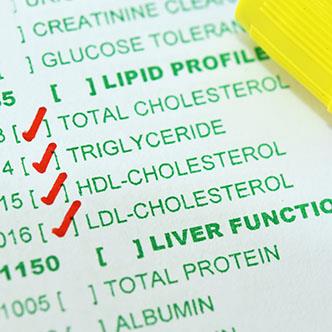
Published in the American Heart Association journal Circulation, this study analyzed data from 49 clinical trials that tested the impact of various cholesterol therapies on heart health. The goal of the analysis was to see how reducing triglycerides impacts risk for heart events like heart attack and stroke.
According to authors, triglycerides are usually included in cholesterol tests as a way to assess heart risks. However, triglycerides are not as aggressively treated as things like LDL (low-density lipoprotein) cholesterol, since the benefits of triglyceride therapy are unclear.
The recent analysis included 374,358 patients who were put on therapies known to reduce triglycerides, including statins, fibrates, niacin and omega-3 fatty acids. Participants’ average triglyceride level was 163 mg/dL, which is slightly higher than recommended goal of 150 mg/dL based on current guidelines.
During an average follow-up of 5 years, there were a total of 46,180 heart events among participants. However, researchers found that every 1 mmol/L reduction in triglycerides was associated with 8–21% lower risk of heart events, depending on the type of analysis.
Authors also found that for each 1 gram of EPA (eicosapentaenoic acid)—one form of omega-3 fatty acids—taken per day lowered risk for heart events by 7%. The health benefits of another type of omega-3 fatty acids called DHA (docosahexaenoic acid) were not significant.
The take-home message, according to authors, is that lowering triglycerides does, in fact, reduce risk for heart events. Findings also confirm the benefits of the omega-3 fatty acid, EPA, in reducing risk for heart events.
So why has there been uncertainty in the benefits of lowering triglycerides? The study showed that nearly all trials testing non-stain drugs didn’t include enough patients to detect a meaningful difference in outcomes. However, by combining findings from nearly 50 studies for this analysis, experts were able to get a more accurate picture of the effects of triglyceride-lowering therapies.
Of course, authors note that the impact of lowering triglycerides is not as significant as lowering LDL cholesterol, which doctors currently treat aggressively to reduce heart risks. However, heart disease is the leading cause of death among both men and women in the United States. Treating triglycerides, in addition to other types of cholesterol, could offer an important way to further reduce risk for life-threatening heart events.